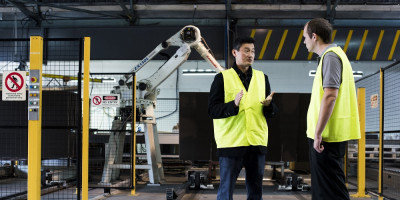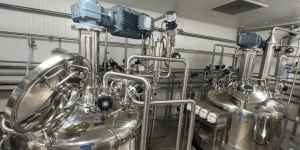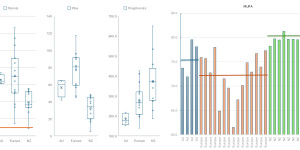From next year budding New Zealand startups will have even stronger support to help turn technology and science into successful businesses.
Four tech incubators have been selected for a new Technology Incubator programme, and a new HealthTech Activator initiative is being introduced, Vic Crone, CEO of Callaghan Innovation announced today.
“There are significant opportunities to turn more of New Zealand’s advanced technologies into successful businesses. Many of these technologies start out at our universities and we want to see them thrive,” says Ms Crone.

Vic Crone
Under a new and improved Technology Incubator programme launching in April 2020, deep tech startups will have access to four incubators, up from three in the pilot, as well as higher repayable loan amounts of up to $750,000. The programme is boosted by funding allocated in Budget 2019 along with an additional $9 million funding announced in September.
The four tech incubators announced today will ensure this IP makes it out of the lab, and starts creating high value exports and jobs. These incubators – currently in contract negotiations are:
-
- Brandon Capital Partners
- WNT Ventures
- Sprout
- Bridgewest Ventures.
“Innovators need the right support in the early phases of their business development, and we want to grow that capability in the ecosystem,”
- said Ms Crone.
“Our tech incubators will provide Kiwi innovators with a fantastic breadth of commercialisation support, international and local connections, and access to investment. In addition to this there is specific expertise available for sectors of strategic importance to New Zealand, including agrifood and life sciences.”
Ms Crone says: “There are also opportunities for New Zealand to create more successful healthtech startups, but there is a wider need to pull together support across the sector, which has more complex, expensive and riskier paths to commercialisation.”
“A new HealthTech Activator run by Callaghan Innovation, working alongside CMDT and MedTech CoRE, will coordinate healthtech support resources and data across the ecosystem. The idea is to speed up the journey of healthtech startups by better connecting, demystifying commercial avenues and reducing risks,” adds Ms Crone.
The HealthTech Activator initiative has been allocated $2 million over four years to cover staffing, operational costs and programme support. While the Activator support services will be virtually accessible across the nation, Callaghan Innovation anticipates establishing two physical nodes to provide a location for early stage healthtech companies to network, hot desk or co-locate for short periods.
Powerhouse and Astrolab
The pilot programme achieved some great results with the foundational tech incubators, including over 45 new deep tech startups, attracting significant investments, and creating new high-value tech jobs. However, the new RFP was highly competitive and unfortunately current incubators, Astrolab and Powerhouse, were not successful in their bids to deliver the new programme. Callaghan Innovation is working with the incubators on their transition out of the programme and to help ensure any ventures still in incubation are supported appropriately.
Further information on the HealthTech Activator will be available in the new year and for more information on the Technology Incubator programme visit Callaghan Innovation’s website.
About the 2020 Tech Incubators
Bridgewest Ventures
Bridgewest Ventures is part of the Bridgewest Group (“Bridgewest”), a US-based investment company, which also operates a Technology Incubator in San Diego, California. Bridgewest has been successful in its ability to incubate and launch major global innovation-led companies and intends to leverage this experience to replicate the same successful model in New Zealand. Bridgewest’s deep technology experience is wide-ranging and includes biotechnology, agri-tech, pharmaceuticals, UAV technology, IoT and semiconductor, AI and software development, as well as drug discovery and deep research into health technology. It intends to leverage its connections, international reach, and commercialisation experience to transform New Zealand opportunities into world-class companies.
WNT Ventures
Deep-tech incubator, WNT Ventures, was created in 2014 through a collaboration with experienced entrepreneurs and institutional capital providers. Its key mission is to support the commercialisation of complex technology by sourcing, investing in and incubating high growth early stage businesses with global potential. WNT has interests in sustainability, agritech and food, artificial intelligence, medtech, engineering, sensing and industrial automation. During the pilot technology incubator programme, WNT has raised and invested two funds totalling $7.8 million and alongside Callaghan Innovation have invested in 14 companies throughout New Zealand.
Brandon Capital Partners
Brandon Capital Partners (Brandon), established in 2007, is a leading life science venture capital firm with a New Zealand and Australian presence. As a life science technology incubator, Brandon will curate and seed promising life sciences research discoveries, providing access to capital, expertise and hands-on training to support the next generation of New Zealand life science companies. With networks and capacity generated through the Medical Research Commercialisation Fund (MRCF), and with staff in NZ, Australia, USA and the UK, it brings a strong international perspective. Brandon has over $700 million in funds under management with the capacity to provide significant funding to support ideas through to commercialisation.
Sprout
Sprout is an existing Callaghan Innovation-funded business accelerator based in Palmerston North and has been working with agrifood tech start-ups since 2014. Its focus is investment in technologies that improve the efficiency and sustainability of food production and distribution. As a newly appointed Callaghan Technology Incubator, Sprout will extend its activities to provide emerging agritech and future food start-ups with a pathway to global markets and international investment networks. Sprout’s technology incubator has a mix of international, local and sector-focused investors including Fonterra, Finistere Ventures and OurCrowd.
Tech Incubator and HTA FAQs
Are Technology Incubators same as the HealthTech Activator?
No, they have different mandates and the type of support, funding and resources they provide to startups. Please see below to find out their purpose.
What is the purpose of Tech Incubators?
The Technology Incubator programme helps startups commercialise advanced technology such as biotech and aerospace technology - which come, largely, from research out of universities. These technologies are generally more expensive and take longer to turn into viable businesses than others, but when they do, have a significant potential for earning and job creation.
How do Tech Incubators work?
Tech Incubators provide commercialisation support, advice and connections to help startups take very complex technologies to market. The incubators are also the avenue to which deep tech startups can access up to $1,000,000 in funding which consists of $750,000 in the form of a repayable loan from Callaghan Innovation and up to $250,000 in private investment. Startups commence repayable loan payments when they begin earning revenue.
Who is able to access Tech Incubator services?
Technology Incubators have their own selection, screening and investment criteria that they use to choose investment opportunities before they apply to Callaghan Innovation for a pre-incubation grant or repayable loan. More information will be provided in the new year. Repayable Loan applications are assessed based on IP & complexity of the technology, commercial viability and identified markets, and the team/recruitment strategy. It can be an early stage technology or a company. Visit our website or the individual tech incubator’s websites for more details.
What’s new compared to the pilot Tech Incubator programme?
Briefly, the new programme includes:
-
- A strong policy focusing on excellent commercialisation experience, access to investment and pathways to global markets
- Each incubator has access to pre-incubation grant and repayable grant funding for select startups going through its incubation services
- A new maximum amount for repayable grants available to incubated ventures of $750,000 (matched by $250,000 of co-funding from the incubator). The current maximum is $450,000 (matched by $150,000 of co-funding from the incubator)
- Each incubator can also access operational funding, providing they co-fund 50% of the total operational funding over the life of their contract with Callaghan Innovation.
- More rigorous guidelines and performance metrics, with a serious data focus.
What will happen to the current Tech Incubators that will not continue under the programme?
We are working with Astrolab and Powerhouse on their transition off the current Technology Incubator Programme, and to help ensure ventures they still have in incubation are supported appropriately. Existing tech incubator WNT Ventures will join the new programme in April.
Will any Tech Incubator changes impact services for startups?
We anticipate the resulting changes will be very beneficial for startups in general. Many of the current startups have completed their incubation activity and will continue regular reporting to Callaghan Innovation. We are working with the rest on their transition options and to ensure they have appropriate commercialisation support.
What did the pilot Tech Incubator programme achieve?
Since its launch in 2014 the pilot programme achieved some great results with the foundational tech incubators, including 45 new deep tech startups, attracting significant investments, and creating new high-value tech jobs.
What is the HealthTech Activator?
The HealthTech Activator is a coordinated, ecosystem-wide support mechanism led by Callaghan Innovation, working closely with CMDT and MedTech CoRE, to drive the commercialisation of healthtech and growth of emerging New Zealand healthtech companies. It will make it easier for healthtech startups to find and access the support they need to turn their health innovation into successful businesses.
What will the HTA do?
Play a leadership role by driving greater collaboration, connectivity and commercialisation rhythm at an ecosystem-wide level. It will do this in partnership with existing stakeholders (including tertiary, clinical and agency).
Develop programmes and services in conjunction with stakeholders from across the sector that prepare startups for international commercialisation.
Provide a point of coordination and connectivity for the sector, including gathering and organising data and sector intelligence.
How much HTA funding has been allocated and when will it begin?
The initiative has been allocated $2 million over four years ($500,000 a year) for staffing, operational costs and programme support around key aspects of early stage funding and capital planning, regulatory, reimbursement, and clinical trial activity. Work has begun in this space as the HealthTech Activator is an ongoing initiative of work and collaboration.





















